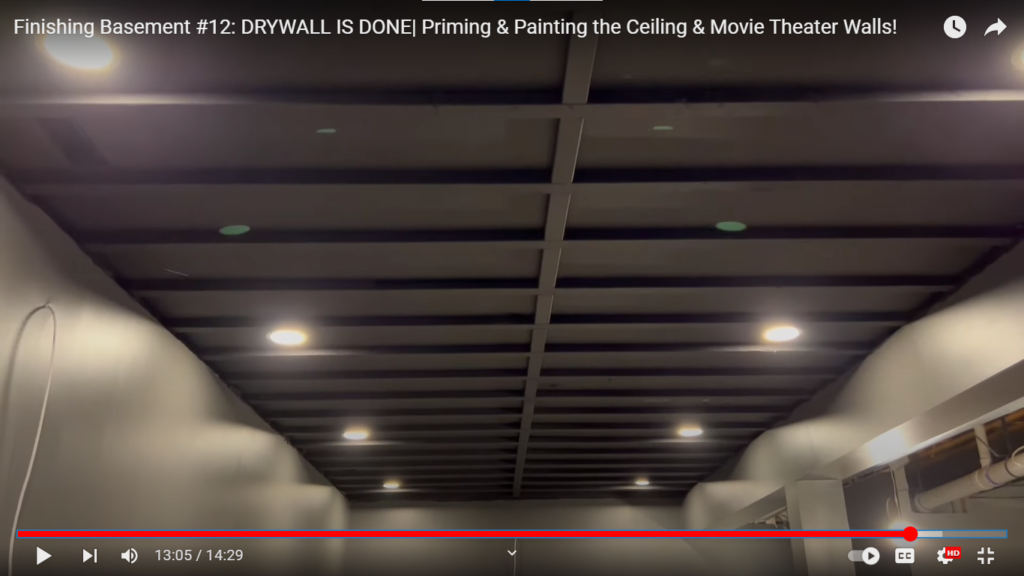Some people might wonder if they really need to get their basement ceiling insulated or not. While answering this question we have come across a number of basements in order to find out what would be circumstances of your basement with or without insulation.
This article is for you if you want to find out the pros and cons of basement ceiling insulation and everything else revolving around the topic.
In this article, we will explain everything related to the basement ceiling as people get their basements insulated in order to make the environment a bit warmer. Continue reading this article if you want to know more.
You can also visit this blog: Can You Use Filtered Water In A Humidifier - What To do?
Basement Ceiling Insulation; Necessary Pros & Cons

Basements are really moist and cool but we will recommend you keep your basement dry and conditioned. If your basement is pest and moist, It can invite many unwanted issues that you would not like.
Hindi sahitya kal will tell you the right way to insulate your basement ceiling as well as the advantages of an insulated basement. This article will also tell you about the disadvantages of basement ceiling insulation as there are many.
We will suggest you read this article till the end in order to grab the topic with a better understanding.
Do You Really Need To Insulate Your Basement Ceiling?
The notion we would like to share on this point is that basement ceiling insulation is not considered necessary for most homeowners due to different reasons. Well, selecting your basement sealing will bring you some advantages as well as disadvantages. Continue reading this article in order to find out the details of the advantages you are going to get after insulating your basement ceiling and the disadvantages as well.

The Good Sides Of Basement Ceiling Insulation
There are several benefits of insulating your basement ceiling depending upon the area in which you live and the climate changes occurring around your living area. The pertinent benefits which you will get after inflating your basement ceiling as given as follow:
Energy Saving
If you are living in an area where winters are cold, we will recommend you get your basement ceiling insulated. You can never avoid such situations where you have to go on traveling or to visit other places. Leaving your home behind without a thermostat can cause the temperature of the building to get cooler than before. This significant change in temperature can waste energy significantly. As you might have observed, your basement is already cool enough so you need to insulate its ceiling at least to keep it warmer during winters.
Noise Proofing Layers
If you have taken your decision to insulate the ceiling of your basement then we will recommend you to consider the noise-proofing sheets and layers while insulating the basement. Different people use their basements for different purposes. Some might use it to store the extra stuff while others may transform the basement into a home theater where the family members get together and watch movies.
The point of interest is that if you want to make your base men a creative and productive sort of place then you need to make it noise-proof by using noise-proofing layers during the insulation process.
Moisture And Humidity Control
Due to its Placement in the structure of your house, you have already seen that your basement is cool and the moisture and humidity levels in your placement are higher in comparison to the rest of your house.
For this reason, we will highly recommend you get your basement ceiling insulated to avoid moisture and humidity. If your basement ceiling is not insulated yet, we will recommend you to get it insulated as soon as possible and see the difference by yourself. The insulation will definitely help you in reducing moisture and humidity in your basement.
The Bad Sides Of Basement Ceiling Insulation:
As we have discussed the safe benefits of insulating your basement we are now going to
discuss some of the disadvantages of insulating your basement ceiling. Let’s continue reading with us:
In Terms Of Cost
One of the reasons why most homeowners do not insulate their basement ceilings is because they have to pay separately for this project. Most people who live in cold climates pay more attention to heating their homes than their basements because most of the time they live in their living room rather than their basement and also they don’t want to spend extra money on a single project.
To prevent this additional cost, many homeowners choose to insulate the interior and surrounding walls of the basement instead of insulating the entire basement.
2. You Can Lose Height Of Ceiling
When you put a layer of insulation on your basement ceiling, as a result, you have to compromise on your basement ceiling height. Depending on the size of the insulation you may have to lose about 8 to 6 inches of your basement ceiling after the installation of drywall.
As a result, your basement will have a total height of less than about 9 feet, and is considered old-fashioned. Remember that basements in American homes are about 7 feet tall.
3. Hard To Install
Whenever you work on the ceiling of your house, it is much more difficult than working on the walls, because you have to deal with gravity as well as height issues. Whenever you work on the ceiling of your house, you will face these problems. Even though you’re trying to install batt insulation, you need to make sure it’s properly secured. Also, remember that it won’t fall out of position or dig in, or come down.
To prevent these problems you need to contact an experienced contractor to carry out the project. Most homeowners don’t consider insulating basement ceilings.
Frequently Asked Questions
Can Insulating Your Basement Ceiling Reduce Noise?
Yes, if you spend most of your time in your basement, you can reduce noise by insulating your basement ceiling. And if you also have problems with cold air inside your basement, this will help you with that as well.
If the insulation is made of fiberglass, it is beneficial to insulate your roof because the airflow is stopped and most of the noise coming from the upper part of the house is stopped.
How much should you pay to insulate a basement ceiling?
If you want to insulate the basement ceiling, it will cost you between $1.45 and $3.50 per square foot. Let’s say the total diameter of your basement is about 2000 square feet, And if you want to install it, it will cost you between $29000 to $7,000.
Spray foam insulation will cost you less than fiberglass insulation because it is easier to install and requires less manpower. On the other hand, fiberglass insulation is a bit more difficult to install and requires more manpower, which costs you a little more than spray foam insulation.
Does your basement ceiling need a vapor barrier?
If you live in a cold region in the USA, vapor barriers are the basic requirements of every building. If you live In an area where the temperature is average, it is not necessary.
We recommend that if you live in a warmer area you don’t need a vapor barrier in your basement ceiling because it will keep more moisture and it will be more harmful than good.
Final Words
To wrap up the whole article, we can say that there are certain benefits of insulating your basement ceiling, and just like any other thing, there are some drawbacks too.
We will recommend you insulate your basement ceiling if you have your Living area in cooler regions. But you need to take care of the moisture and humidity inside your basement. You need to keep track of the atmosphere of a basement in order to keep it comfortable. Other than insulation, we will recommend you make your basement soundproof by pasting soundproofing sheets.
Hoping that you have found the answers to the questions you had in your mind after reading the article.
Related:









